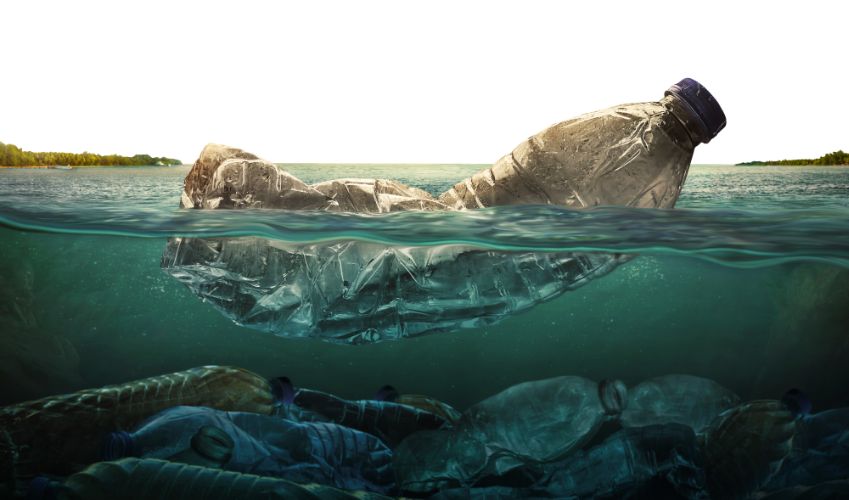
The oceans are an essential part of our planet, covering over 70% of its surface and providing a home to millions of marine species. They also play a crucial role in regulating our climate and providing us with resources such as food, energy, and medicine. However, the oceans are facing numerous threats from human activities, including pollution, overfishing, and climate change. It is crucial that we take action now to protect our oceans before it is too late.
海洋是地球的重要组成部分,覆盖了地球表面的70%以上,为数百万海洋物种提供了家园。它们还在调节气候和为我们提供食物、能源和药物等资源方面发挥着至关重要的作用。然而,海洋正面临着来自人类活动的众多威胁,包括污染、过度捕捞和气候变化。至关重要的是,我们现在就采取行动,在为时已晚之前保护我们的海洋。
Pollution is one of the most significant threats to the oceans. Every year, millions of tonnes of plastic, chemicals, and other pollutants are dumped into the oceans, causing harm to marine life and ecosystems. Plastic pollution is particularly concerning, with an estimated 8 million tonnes of plastic entering the oceans each year. This plastic not only harms marine life, but it also breaks down into microplastics, which can enter the food chain and harm human health.
污染是海洋最严重的威胁之一。每年,数百万吨塑料、化学物质和其他污染物被排入海洋,对海洋生物和生态系统造成危害。塑料污染尤其令人担忧,据估计,每年有800万吨塑料进入海洋。这种塑料不仅危害海洋生物,还会分解成微塑料,进入食物链,危害人类健康。
Overfishing is another major threat to the oceans. Unsustainable fishing practices, such as bottom trawling and overfishing of certain species, can devastate marine ecosystems and deplete fish populations. This not only affects the food security of millions of people who depend on seafood but also has economic consequences for the fishing industry and coastal communities.
过度捕捞是海洋的另一个主要威胁。不可持续的捕捞做法,如底拖网捕捞和某些物种的过度捕捞,会破坏海洋生态系统,使鱼类种群枯竭。这不仅影响到数百万依赖海产品的人的粮食安全,还会对渔业和沿海社区产生经济后果。
Climate change is also having a significant impact on the oceans. Rising temperatures and ocean acidification are affecting marine ecosystems and the species that rely on them. Coral reefs, for example, are particularly vulnerable to climate change, with rising temperatures causing coral bleaching and death. This not only affects the biodiversity of our oceans but also has economic consequences, as many communities rely on coral reefs for tourism and fisheries.
气候变化也对海洋产生了重大影响。气温上升和海洋酸化正在影响海洋生态系统和依赖它们的物种。例如,珊瑚礁特别容易受到气候变化的影响,气温上升会导致珊瑚白化和死亡。这不仅会影响海洋的生物多样性,还会产生经济后果,因为许多社区的旅游业和渔业都依赖珊瑚礁。
So, what can we do to protect our oceans? Firstly, we need to reduce our use of single-use plastics, such as straws, bags, and water bottles, and promote recycling and the use of biodegradable alternatives. We also need to improve waste management systems to prevent pollution from entering the oceans.
那么,我们能做些什么来保护我们的海洋呢?首先,我们需要减少一次性塑料的使用,如吸管、袋子和水瓶,并促进回收和使用可生物降解的替代品。我们还需要改善废物管理系统,防止污染进入海洋。
Secondly, we need to promote sustainable fishing practices and protect marine ecosystems. This can be done through measures such as marine protected areas, fishing quotas, and regulations on destructive fishing practices.
第二,促进可持续捕捞,保护海洋生态系统。这可以通过海洋保护区、捕捞配额和对破坏性捕捞做法的规定等措施来实现。
Thirdly, we need to take action on climate change by reducing our greenhouse gas emissions and transitioning to renewable energy sources. This will not only help to protect our oceans but also our planet as a whole.
第三,我们需要采取行动应对气候变化,减少温室气体排放,向可再生能源过渡。这不仅有助于保护我们的海洋,也有助于保护我们的整个地球。
In conclusion, protecting our oceans is essential for the health of our planet and the millions of species that call it home. We must take action now to address the threats facing our oceans and ensure a sustainable future for generations to come.
总之,保护我们的海洋对于我们的星球和以其为家的数百万物种的健康至关重要。我们现在必须采取行动,应对海洋面临的威胁,确保子孙后代有一个可持续的未来。


